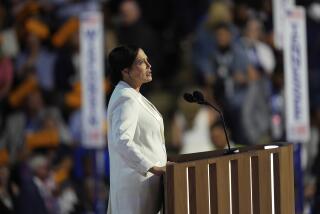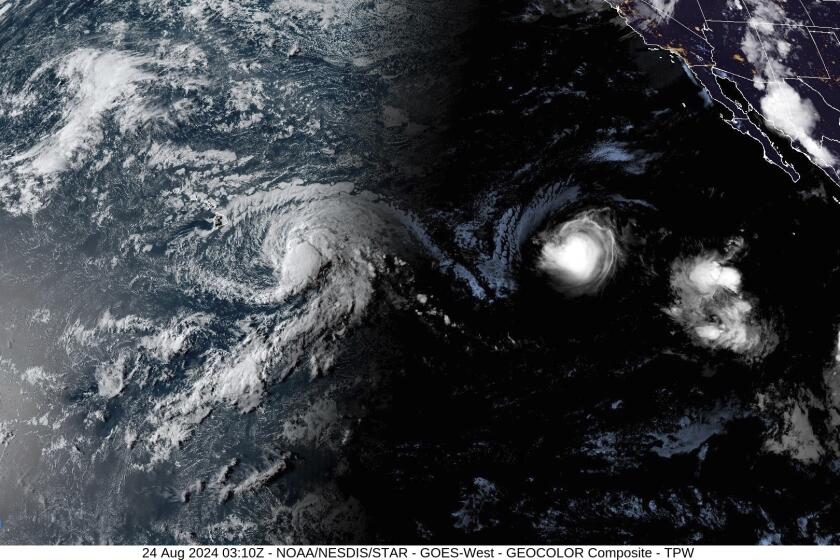Israelis Enter Gaza to Confront Rocket-Firing Attackers
Israel on Tuesday made its first military incursion deep into the Gaza Strip since withdrawing from the seaside territory last summer, sending special forces backed by a helicopter gunship to ambush a squad of rocket-firing Palestinian militants.
Four Palestinians were killed and about six were wounded in an intense predawn exchange of fire that lasted more than an hour and occurred nearly two miles inside Gaza.
At least three of those killed were members of a cell from the Palestinian militant group Islamic Jihad, the Israeli army and Palestinian medical officials said.
The fourth fatality was a member of the Palestinian security forces, Palestinian security officials said.
The confrontation marked a change in tactics for the Israeli military, which has been frustrated in recent months by an inability to quell the firing of rockets in the direction of Israeli cities and towns.
Although the crude projectiles rarely cause casualties on the Israeli side, Israel considers the near-daily barrage a strategic threat -- particularly because Islamic Jihad has recently obtained more sophisticated rockets that put Israeli coastal communities such as Ashkelon within range of Gaza.
The raid drew an angry and alarmed reaction from Palestinian officials, including moderate-minded Palestinian Authority President Mahmoud Abbas. Palestinians fear that Israel will, by increments, reoccupy Gaza, which was relinquished in September by the Israelis’ then-prime minister, Ariel Sharon.
For the last two months, Israel has directed concerted artillery fire at an area of northern Gaza used by militants as a launching ground. But more often than not, Palestinian civilians, and not those who fire the rockets, are killed and injured in the cross-border shelling.
Palestinians wounded in Tuesday’s fighting included four medics and two journalists, said Palestinian human rights groups.
The Gaza-based Palestinian Center for Human Rights said it was “gravely concerned” over the incident, saying it showed that the Israeli army had “not withdrawn from the Gaza Strip, but only redeployed around it.”
Israel defended the incursion as a necessary measure. “The policy is to stop the rockets, because the situation is intolerable,” said Capt. Jacob Dallal, an army spokesman.
Although Israel employs highly sophisticated means of monitoring the launching of rockets, the projectiles have a flight time of less than a minute, which makes it nearly impossible to intercept them in flight.
Israel often launches retaliatory strikes within moments, but even that short window gives the militants time to flee.
In recent months, several senior Israeli commanders have suggested that a large-scale ground offensive in Gaza was possible if the rocket fire continued.
Neither the Palestinian government, run by the Islamic militant group Hamas, nor Abbas, whose executive branch controls most of the security forces, has made significant headway in halting the rocket attacks.
Since last summer’s withdrawal, Israeli forces have made brief forays a few yards into Gaza to clear mines near the border fence, but Tuesday’s raid marked a clear escalation. Israeli media reports said that in addition to ground and air forces, navy divers took part in the incursion.
In the West Bank, three Palestinian militants were killed in separate arrest raids early Tuesday, the Israeli army said. Two of the slain were identified as being affiliated with the Al Aqsa Martyrs Brigade, a militia that claims allegiance to Abbas’ Fatah faction. The other was from Islamic Jihad.
Also Tuesday, Israel renewed threats to revoke the Jerusalem residency of three Hamas lawmakers and a Hamas Cabinet minister.
Interior Minister Roni Bar-On told Israel Radio that the four must either cut their ties with Hamas in the next month or face expulsion to the West Bank.
The Hamas legislators have said they would fight any such move by Israel in court. Revocation of residency in Jerusalem has generally been carried out only in instances when a person is convicted of a crime.
More to Read
Sign up for Essential California
The most important California stories and recommendations in your inbox every morning.
You may occasionally receive promotional content from the Los Angeles Times.






